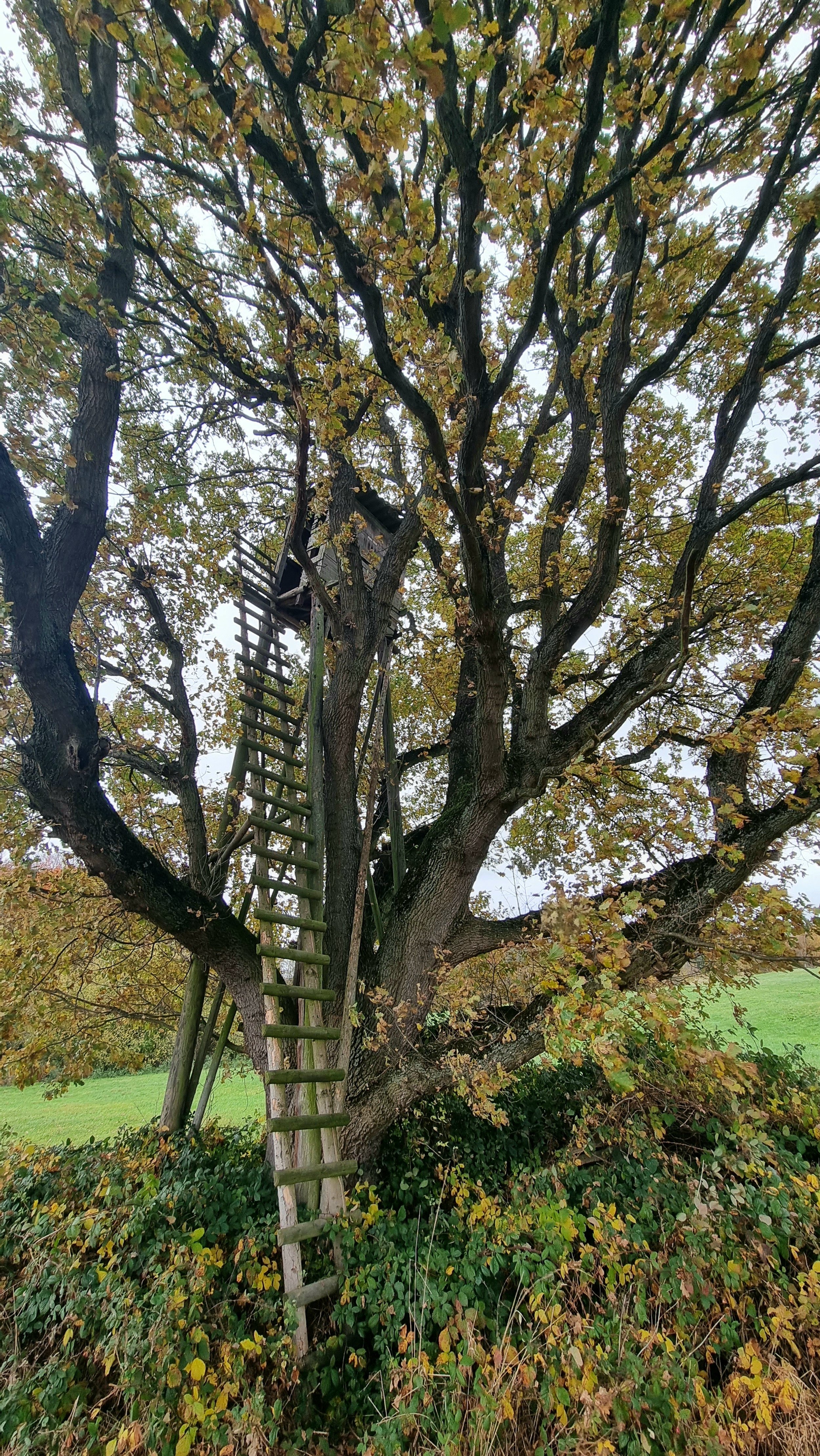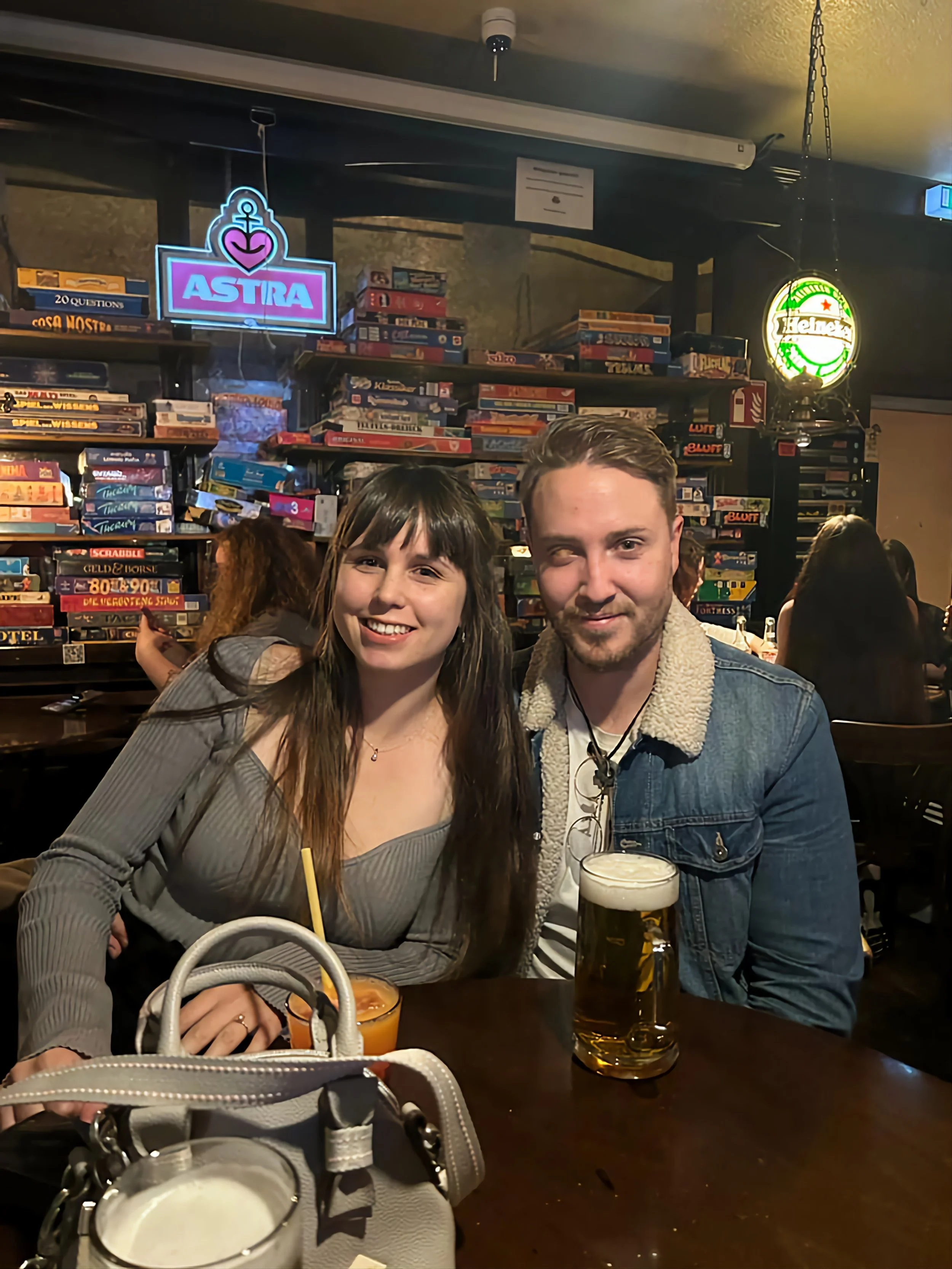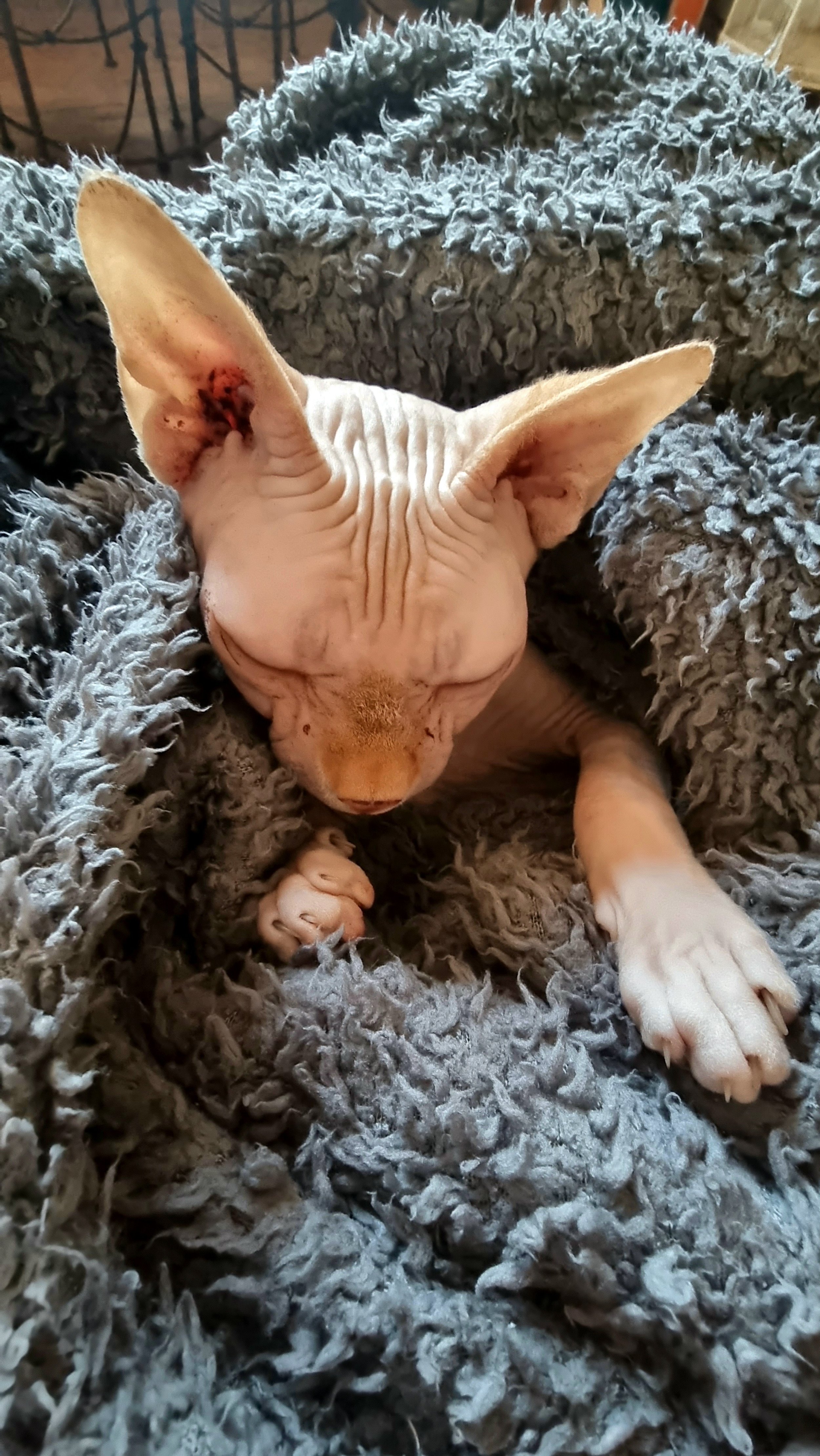A Taste of the Past, a Taste of the Future
This week has been the most eventful since we first touched down on German soil. It begins with visiting the town where Alessandra spent her adolescent years, and ends with the meeting of a mythical hero: Siegfried. The journey that spans all of Europe begins to lay itself out before us, as we begin to take those all-important first steps.
It was the Monday of our third week, and we began the day bright and early - and not with a little trepidation, for Gritt had lent us use of her car, so that Alessandra could take me to visit a piece of her past. When we arrived at Gritt’s work, she said goodbye and passed the keys to Alessandra, whose confidence grew with every passing twist and turn. Though we were driving on what, to us, is the wrong side of the road, we had been driving around enough before now to acclimate to it; before long, it didn’t seem to phase Alessandra at all.
We took the autobahn 45 minutes up to Linz Am Rhine - an old little riverside town, where Alessandra had passed four years of her late adolescence. She took me to the old town gate, upon which were mounted small, rectangular metal plaques -some two or three meters overhead - and upon each was engraved the year that the river had swelled and flooded to that level. We wandered the quaint, winding streets, marvelling at the details that populated every nook and cranny, carved and shaped with the elaborate care of the true craftspeople of times long past. The buildings all jostled shoulder to shoulder, some warped and slanted and bulging from age in their dark wood, boasting carved window frames and doors with ornate brass fittings, and gothic text with varied meanings running along the facades that lined the cobblestone streets.
Look closely - you’ll see all the little tags for the flood levels.
We took breakfast at a local cafe, and Alessandra showed me where she went to school, and the house in which she’d once lived, its front renovated beyond recognition. Nearby was a forest, which gave way to long stretches of rolling green hills and pasture land. We walked through the trees and out into the fields, then passed several bored cows as we made our way over to an enormous old tree, which stood tall amidst the grasses. There was a long ladder that ran up into the mass of tangled branches, and I climbed up to find a little treehouse, with ‘1977’ painted in red on a rotting interior wall.
100% enchanted tree.
From Linz, we drove to Bonn, stopping at a huge Haribo outlet store, which displayed every conceivable gummy sweet in glistening rainbow piles that lined the walls and filled every shelf. We took one of the cardboard cups available near a set of plastic dispensers, and filled it with all the good things we were most excited to try. We bravely ate only two or three of the lollies each before closing the lid, then leaping into the car and making for an expanse of parkland that followed the river’s edge. The light rain didn’t stop us from exploring the length and breadth of the park, stopping briefly to greet the snow-white swans that lounged sleepily by the river.
They woke up when I knelt down, but thankfully, did not attack.
We still had a little time to kill before Gritt needed to be picked up from work, so we made our way back to Koblenz, stopping along its fringes to browse the many fashion outlet stores there, looking for and finding nothing in particular. We made our way for Gritt and home.
…
The next few days all blurred together - a mix of work and exercise breaks. The ongoing jobs are all dull, bureaucratic slogs, made more difficult by the opaqueness of the processes we need to follow to do what needs to be done. Among these jobs, two dominate: securing the work visa that would allow me free reign to paint the murals I’m hoping to leave behind as we travel Germany and greater Europe; and securing an appointment at the hospital in Frankfurt for a follow-up PET scan in January. It’s the work visa that’s really bothering me - if I can’t secure one before the end of January, I have to leave Europe; or, at least, those countries that are part of the ‘Shengen Area’ - a collection of countries that allow free travel amongst themselves for 90 out of any 180 day period. Not getting that work visa means I’m on the short-stay visa which, in turn, means leaving after three months and not returning for a minimum of three months after that. Between phone calls going unanswered and emails being redirected, we feel like we’re being passed from one disinterested party to another; still, we must persevere. This drudgery has been broken up by long, slow runs and walks along the river, which is slowly rising higher, temporarily claiming back the land around it.
I swear this path used to lead somewhere…
On Thursday evening, Leonie, Alessandra and I took a train and bus into Koblenz, visiting Leonie’s favourite bar. It was a great place to be: atmospheric and welcoming, with warm lighting set against the cold, dark night. It was crammed full of people of every colour and kind, and merriment was in the air. To the far end, by the darts and close to the pool tables, was a wall of every conceivable board game. We found a little round wooden table just off to the side of the bar, and drank beers and played Ludo and Uno until we looked at the time and reluctantly caught a bus for the long ride home.
The beginning of the night
…
Friday morning punished us for our late night out, yet we had no choice but to get up and get the day started; for this was the day Gritt would drive us all to Münster, ahead of our van-viewing Saturday. Despite an early morning, we were late in getting underway, with Alessandra shaking and nauseous - a symptom, we guessed, of the tequila shot that capped off the night before. As the time ticked towards midday, we set off, and what was was meant to be a two and a half hour drive turned into a four and a half hour nightmare, with traffic jamming up the autobahn in the middle of the trip. We had planned to see the sights in Münster, but our late arrival and the rain that pelted down prevented any exploration. We got to our Airbnb in the failing light of late afternoon, and lugged our overnight bags up to the little converted loft, freshened up, and left for a Turkish restaurant to meet up with one of Alessandra’s childhood friends. After dinner, we walked over to another place, where we sat drinking coffee and hot chocolate shot through with whisky and Bailey’s Irish Cream, until it was time to say goodbye.
…
It was time - the Big Day. We packed our bags and drove an hour out of Münster, to the van we prayed we would be driving home. The owner, Nico, gave us an extensive tour when we arrived. He was a mechanic, and had built and outfitted the Peugeot from scratch, but it was too small for his growing family. It was excellent, full of thoughtful little additions to make the most of the space: plenty of deep storage cabinets and drawers; a full shower with an economical shower head to make the most of the water; magnetic locks on the drawers. The interior had a cool, quiet feeling, and was outfitted beautifully in shades of sage and grey and ash-coloured wood, its roof festooned with macrame weaves. After the test drive, we agreed on a price and sorted out payment and paperwork. It felt surreal, to finally have our European van - as yet unchristened, but certainly in need of a name. And by the end of the long drive home, we had agreed on what it was, and our van received his name: Siegfried. The name, we realised after agreeing on it, roughly translates to ‘victorious peace,’ which made it all the more fitting.
It was night by the time we pulled into a parking space around the corner of the apartment, and we were all exhausted beyond measure, but we went to sleep with light hearts.
Our noble Siegfried
…
After such a milestone, Sunday paled into irrelevance by comparison. Alessandra tried the hospital and immigration office again (no answer), and we walked down to get Alessandra’s photo taken as part of a photocard application (a form of I.D). On the way back, we stopped for groceries, and briefly rifled through Siegfried to get a better sense of what we’re working with. The evening passed uneventfully, and it seemed to both of us that our bodies were asking for time to recover. The week ahead is likely to be a busy one, after all.
What a week, starting with reminiscences and ending with the future. What learning can be pulled out at its end? Let’s see.
It is good to revisit your history and retread old paths, and better to share it with the person you love;
Doing the scary stuff makes it less scary;
Relish all the little details: they’re part of what make a thing so beautiful;
Unnecessary bureaucratic nonsense is infuriating, no matter where in the world it lurks;
Sometimes, all you need to relax is a good atmosphere, friends, something nice to drink and something fun to play;
Trust people who are passionate about what they do; and
As Siegfrieds name implies: peace must be won, and victory takes work.






